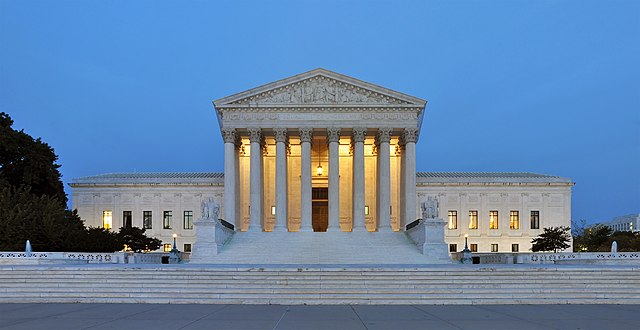
- Details
- By Darren Thompson
On Wednesday June 15 the United States Supreme Court ruled 5-4 in favor of the Ysleta del Sur Pueblo Indian Tribe of Texas, determining that the state cannot regulate electronic bingo on reservation lands.
The case, Ysleta del Sur Pueblo Indian Tribe vs. Texas, overturns a 2020 Fifth Circuit Court determination that Texas had the ability to stop the tribe from gaming activities on their land.
“In this case, Texas contends that Congress expressly ordained that all of its gaming laws should be treated as surrogate federal law enforceable on the Ysleta del Sur Pueblo Reservation,” wrote Justice Gorsuch in today’s opinion. “In the end, however, we find no evidence Congress endowed state law with anything like the power Texas claims.”
Texas claimed that the Ysleta del Sur and Alabama and Coushatta Indian Tribes of Texas Restoration Act of 1987 allows the state to prevent the three federally recognized tribes in the state from offering bingo. Meanwhile, bingo is allowed elsewhere in Texas.
The Ysleta del Sur Pueblo argued that the state was singling out the tribe over its electronic bingo games at an entertainment center in El Paso. The state argued that e-bingo on reservations goes beyond what the state allows.
When the Tribe filed a petition to the Supreme Court, the court asked for views by the Solicitor General. The Solicitor General argued that since the state hasn’t banned bingo, the Indian Gaming Regulatory Act of 1988, not the Restoration Act of 1987, should apply to the Tribe and, therefore, the National Indian Gaming Commission oversees gaming activities.
The court agreed with the Solicitor General and the decision will most definitely benefit the Alabama and Coushatta Tribe of Texas to offer gaming at its Nakila Gaming e-bingo center on its reservation in East Texas. The Alabama-Coushatta Tribe participated in the case, but wasn’t allowed to present an oral argument.
The Kickapoo Traditional Tribe of Texas, the other federally recognized tribe in the state, does not fall under the Regulatory Act of 1987 and has been operating the only casino in the state in Eagle Pass, Texas.
The state can prohibit gaming activities, but cannot regulate gaming activities, said the Supreme Court in its split decision today. The National Indian Gaming Commission is tasked with regulation.
The Ysleta del Sur Pueblo and Alabama and Coushatta Indian Tribes of Texas became federally recognized by Congress through the passing of the Ysleta del Sur Pueblo and Alabama and Coushatta Indian Tribes of Texas Restoration Act of 1987.
More Stories Like This
Native News Weekly (August 25, 2024): D.C. BriefsNCAI Releases Sttatement on the Passing of Rev. Jesse Jackson
Colusa Indian Energy Participates in Port of Quincy Town Hall on Columbia Basin Power Project
Q&A: Jingle Dress Dancer Answered Call to Ceremony in Face of ICE Violence
Haaland Gets First Hand Look at Efforts to Address Homelessness in Albuquerque
Help us defend tribal sovereignty.
At Native News Online, our mission is rooted in telling the stories that strengthen sovereignty and uplift Indigenous voices — not just at year’s end, but every single day.
Because of your generosity last year, we were able to keep our reporters on the ground in tribal communities, at national gatherings and in the halls of Congress — covering the issues that matter most to Indian Country: sovereignty, culture, education, health and economic opportunity.
That support sustained us through a tough year in 2025. Now, as we look to the year ahead, we need your help right now to ensure warrior journalism remains strong — reporting that defends tribal sovereignty, amplifies Native truth, and holds power accountable.
 The stakes couldn't be higher. Your support keeps Native voices heard, Native stories told and Native sovereignty defended.
The stakes couldn't be higher. Your support keeps Native voices heard, Native stories told and Native sovereignty defended.
Stand with Warrior Journalism today.
Levi Rickert (Potawatomi), Editor & Publisher

